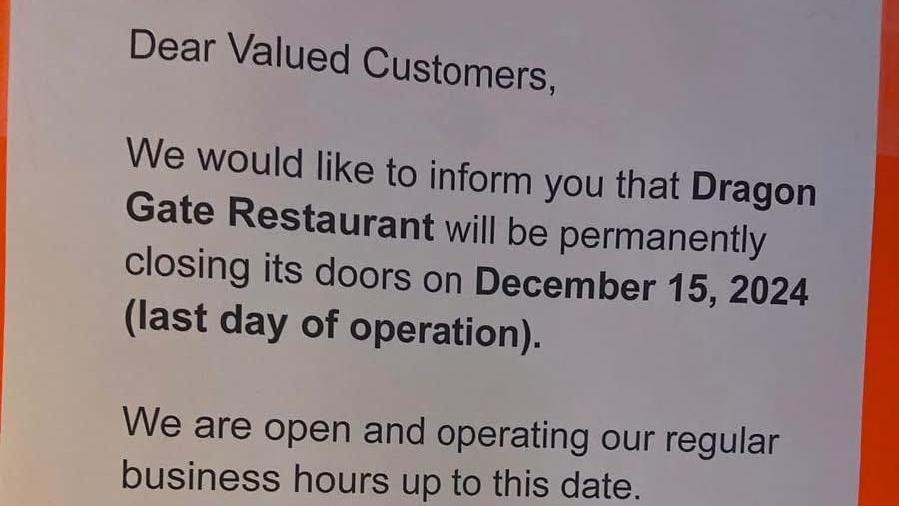After more than three decades of serving the London community, Dragon Gate Chinese restaurant has officially closed its doors on December 15th, marking the end of an era for east end dining.
The beloved establishment, which had become a staple for families across the city, built its reputation on authentic westernized Chinese cuisine that kept customers coming back for generations. Many locals fondly remember ordering their famous Combo B during college years, with some patrons joking they “refuse to consider B as a letter anymore” after countless orders.
Dragon Gate’s closure reflects a broader trend affecting traditional Chinese restaurants across the region. Many of these family-owned establishments were founded by immigrants who arrived in the 1980s and 1990s, and as these owners reach retirement age, their adult children often pursue careers in fields like medicine and engineering rather than continuing the family restaurant business.
The restaurant’s signature dishes, including their renowned Szechuan beef and beef noodles, had earned a devoted following throughout London. Customers regularly drove across town specifically to pick up orders, testament to the quality that kept Dragon Gate thriving in a competitive market.
Local food enthusiasts expressed particular concern about the lack of Chinese dining options remaining in the east end of the city. With Dragon Gate’s departure, residents noted the significant gap left in the neighbourhood’s culinary landscape.
The closure wasn’t entirely unexpected, as the restaurant’s location had long been considered challenging for foot traffic. However, Dragon Gate’s loyal customer base, primarily from the east end, sustained the business for decades through takeout and delivery orders.
Adding complexity to the closure, the restaurant property has reportedly been sold to new owners. Current employees were left uncertain about their employment status, as the new ownership indicated they might not retain existing staff members. The building’s future remains unclear, with speculation about what type of establishment might replace the long-standing Chinese restaurant.
Dragon Gate joins a growing list of traditional Chinese restaurants that have closed in recent years, representing the gradual disappearance of westernized Chinese cuisine establishments. These restaurants, which adapted traditional recipes for local palates, are increasingly being replaced by establishments catering to newer immigrant communities from mainland China.
Regular customers made final visits during the restaurant’s last week of operation, hoping to enjoy their favourite dishes one last time. Families who had made Dragon Gate their traditional New Year’s Day meal destination found themselves saying goodbye to a cherished ritual.
The restaurant’s three-decade run in London’s competitive food scene demonstrated the loyalty it had built among local diners. Many customers had been visiting since the 1990s, creating lasting memories around shared meals and special occasions.
The closure was first discussed among local residents in online community forums, where longtime patrons shared their disappointment and reminisced about memorable meals at the establishment.

